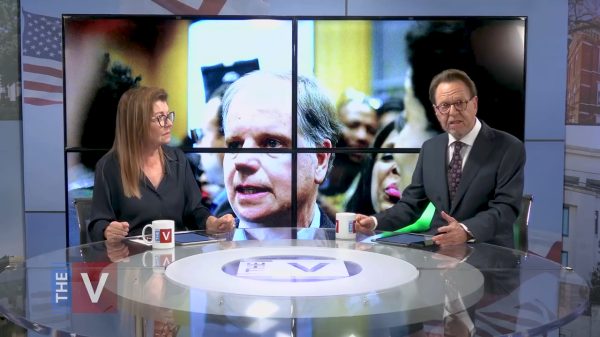Wednesday, the U.S. House of Representatives passed a robust emergency supplemental funding package to prevent, prepare for, and respond to the Coronavirus, the COVID-19 strain. The package – which provides $7.767 billion in emergency appropriations, more than triple the Administration’s original request.
“I voted ‘yes’ today to provide an additional $7.8 billion to fight the COVID-19 coronavirus strain,” Congressman Mo Brooks, R-Huntsville, said. “I’m hopeful this funding will help America better prepare for and reduce COVID-19 fatalities that will otherwise occur should we not do everything we can to combat this highly contagious and once-in-a-century disease.”
“Each week I attend Centers for Disease Control and Prevention, National Institutes of Health, Department of Homeland Security briefings on the COVID-19 outbreak,” Brooks explained. “One message has been clear: no one knows for sure how far COVID-19 will spread nor what its fatality rate will be. There is simply too much uncertainty and educated guessing at this point. It does not help that COVID-19 statistics from two of the most impacted countries, Iran and China, cannot be relied on or trusted to be true. The good news once was that COVID-19, with its projected 2 percent fatality rate, did not appear to be as fatal as pandemic outbreaks of the past few decades (SARS, MERS, or the like). The bad news is that the World Health Organization yesterday announced a 3.4 percent fatality rate, which would make it worse than both SARS and MERS.”
“As I said yesterday, our hearts go out to those who have lost their loved ones and those who are currently undergoing treatment,” Congressman Mike Rogers, R-Saks, said. “This is a global event that requires a global response. I know many of our international partners are working diligently as part of a united effort to understand and address Covid-19’s spread. Unfortunately, some of the actions taken by other countries may have hindered a comprehensive response to this new virus. I remain concerned that Chinese officials knowingly withheld essential information from both the public and the international health community in the most critical stages of this outbreak. I’m sure that the early days of this outbreak will be under intense scrutiny once the crisis is over.”
“Alabamians are rightfully worried about the Coronavirus, especially given the Trump Administration’s slow, unclear and inadequate response thus far,” Congresswoman Terri Sewell, D-Selma, said. “They deserve a coordinated, fully-funded response to ensure they and their loved ones stay safe. This emergency funding is critical to combatting this public health crisis, including the development of a vaccine, and I hope it is quickly considered in the Senate and signed into law.”
“My deepest concern for the moment is the level of preparedness at the state and local level,” Rogers said. “I’ve heard directly from state and local responders, medical professionals, and emergency managers that are dealing with an increasingly concerned public.”
Rogers said that he is, “Interested in hearing from them (experts) what assistance frontline health professionals need from the federal government to effectively deal with this crisis.” “Hopefully, this funding will help speed along important diagnostic, treatment, and vaccination resources that will alleviate this crisis.”
“We listened carefully to the agencies and experts on the front lines in crafting this package,” Sen. Richard Shelby (R-Alabama) said. “Vice President Pence has been very helpful in this effort, and I appreciate President Trump’s eagerness to sign this legislation. I also want to thank Leaders McConnell and Schumer, Vice Chairman Leahy, Chairwoman Lowey, and Ranking Member Granger for coming together to do the right thing for the American people. We face this crisis together; we are fighting it together. Ultimately, I believe we will prevail together. But now is the time for action.”
“Vigorous action is needed to calm nerves, stabilize the situation, and get our arms around this crisis,: Shelby stated. “Congress must marshall the resources necessary for an aggressive, comprehensive, and swift response. I am pleased to report to my colleagues that we have reached a bipartisan, bicameral agreement on an emergency supplemental appropriations package to do just that. The agreement provides a surge in funding at every level – local, state, federal, and international – to meet the growing challenge we face. The total amount included in the package is $7.767 billion.”
“Nearly 85 percent of this funding will be spent right here in the U.S.,” Shelby explained. “$2.2 billion is for the Centers for Disease Control, including no less than $950 million to help state and local governments prevent and combat the spread of the virus. $836 million will go to the National Institutes of Health, to train health care workers on the front lines and to develop diagnostics, therapeutics, and vaccines related to the virus. $61 million will support the Food and Drug Administration’s role in approving such products. $3.1 billion is for the Public Health and Social Services Emergency Fund, to supplement the Strategic National Stockpile; develop and purchase diagnostics, therapeutics, and vaccines; provide resources for community health centers; and help hospitals and health systems adapt and respond. Another $300 million is made available for the purchase of additional diagnostics, therapeutics, and vaccines should further need arise. Finally, to fight the spread of the virus abroad, $1.25 billion is provided to the State Department and USAID to continue their work with our international partners.”
The package has passed the House and is now before the Senate.
“When the package arrives in the Senate, I urge my colleagues to do the same so we can get help to those who need it and ease some of the anxiety stemming from this outbreak,” Shelby stated. “I think we owe it to the American people to do no less.”
U.S. Senator Richard Shelby, R-Ala., chairman of the Senate Appropriations Committee.





















































